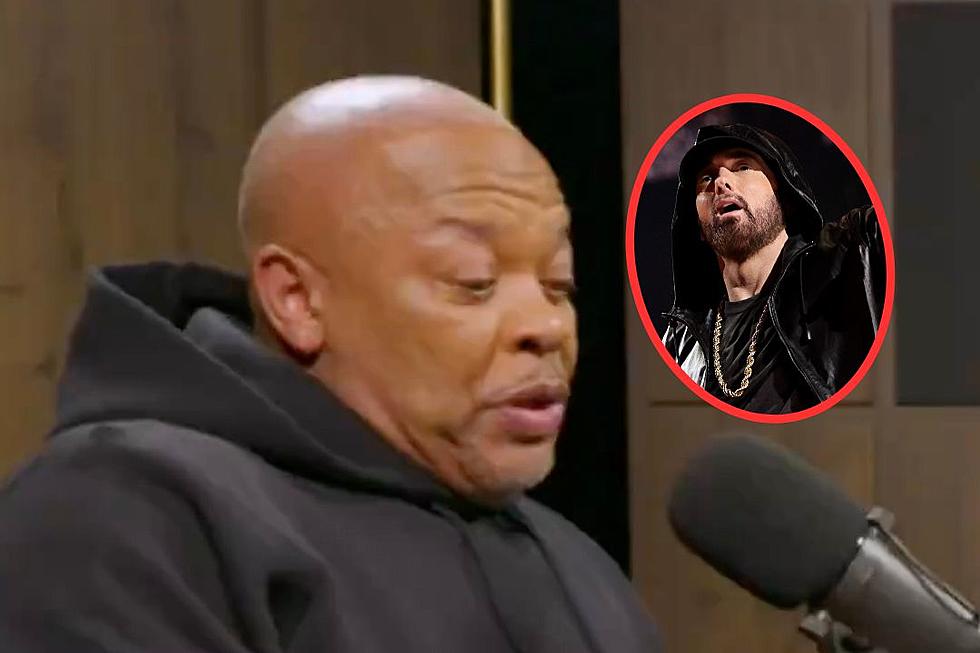
FEATURE: Raekwon, Back for the First Time
Talk to Raekwon for any amount of time and it becomes apparent why he’s called The Chef. Not only does the Wu-Tang Clan lyricist cook up some marvelous narratives to get your mouth watering, he also peppers conversations with a heavy dose of food analogy. Ask how his long-awaited album, Only Built 4 Cuban Linx… Pt. II, will be consumed by an audience too young to recall his 1995 original, and he serves up this response: “It’s like trying to give a kid a fuckin’ chicken salad or something that’s better than eating a Big Mac. He gonna look at you like ya crazy, but, at the end of the day, he may respect it and be willing to taste that chicken salad, and be like, ‘Damn, this shit is good.’”
Fourteen years ago, business was all good for Wu-Tang, specifically Raekwon. The Wu-Tang’s iron flag was flying at full mast, and the first batch of solo albums to drop were all heralded as instant classics, from GZA’s Liquid Swords to Ghostface Killah’s Ironman, but especially Raekwon’s OB4CL, which die-hard fans affectionately refer to as “the purple tape,” since the cassette was made out of dark purple plastic. It was also a dealer’s reference to labeling his product. The Chef’s recipe for success was steeped in vivid criminology raps and RZA’s gritty production, which hip-hop heads ate up like free cheddar biscuits from Red Lobster. While the album positioned Raekwon as one of the game’s best storytellers, it also left the lyricist’s plate full with the high expectations associated with a classic LP.
Following the platinum success of his solo debut and the Clan’s eventful 1997 double album, Wu-Tang Forever, Rae returned, in 1999, with Immobilarity. RZA had long been the primary producer for all Wu-affiliated releases, so, in an effort to further build his own identity, Rae sought out new beatmakers for his sophomore disc. Immobilarity also lacked assistance from OB4CL guest star Ghostface Killah, who, at the time of recording, was serving a six-month jail sentence for attempted robbery. Sales of Immobilarity stalled at a respectable but downgraded 431,000 units to date. The lack of overall fan support and mixed reviews were tough pills for Rae to swallow.
“[Critics] kept saying shit like, ‘Rae’s lyrical content is as strong as ever, and you can tell he’s growing as an artist,’ but then they come in shootin’ me down with, ‘RZA ain’t make the beats, and Ghostface ain’t on it, so that’s where the album lacks the luster,’” Raekwon says. “That, I felt, was a disrespect. That hurt my feelings. I ain’t even gonna front. I’m always gonna take the good with the bad, but respect creativity.”
Signed to Loud Records as a solo artist since 1995, until the label folded in 2002, Raekwon secured a new deal with Universal Records the following year and released his third course, The Lex Diamond Story. The LP was a concept album that followed the rise and fall of a fictional mob figure, but even with the lyrical darts, story-arc approach reminiscent of OB4CL, and an appearance by Ghostface, only 135,000 copies sold. “I think when I hypnotized y’all with Only Built 4 Cuban Linx…, and me and Ghost was really doing what we was doing collectively, people more or less just wanted that world,” says Rae of the disappointing response to his second and third efforts. “When I started doing these [solo] albums, a lot of people wasn’t looking at it like a nigga growing and still making good music. Sometimes I get frustrated because they tell you they want you to grow, and then when you grow, they say you didn’t keep it the way they wanted it to be. You could never satisfy muthafuckas.”
Raekwon figured the only way his career could move forward was by taking a step back. In late 2004, he announced that he was focusing on OB4CL Pt. II. There had been a small mention, five years earlier, on the inset of Immobilarity, that a follow-up to his classic debut was coming “spring/summer 2000,” but nothing more was ever really spoken. Now it was time for the Wu-Tang MC to take it back to the basics. In an effort to satisfy fans’ hunger for more, Rae promised that the album would carry on the tradition of the original and include RZA, Ghostface and the rest of the Clan, as well as a few unexpected contributors. Busta Rhymes, whom Rae describes as his motivational coach, would be serving as the disc’s executive producer. Early reports were that the project would be released through Dr. Dre’s Aftermath Entertainment, the then-home of Busta Rhymes, but after several months of negotiation, a deal never materialized.—Anslem Samuel
For more of the Back for the First Time article, make sure to pick up XXL's October issue on newsstands now.
More From XXL









